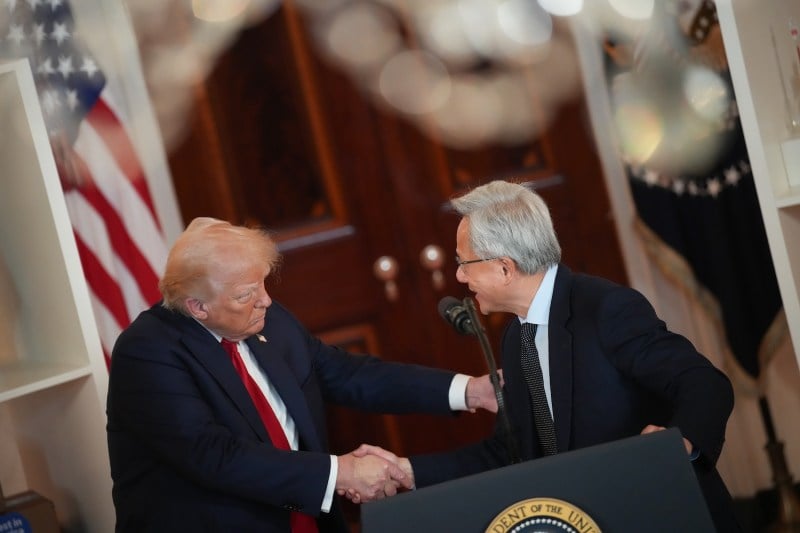White House Navigates Legal Complexities of Export Deals with Nvidia and AMD for China Chips
White House Navigates Legal Complexities of Export Deals with Nvidia and AMD for China Chips
By
Rachel Steinberg
Last updated:
August 13, 2025
First Published:
August 13, 2025

Photo: Foreign Policy
The Trump administration is actively working through the legal and logistical details surrounding its recently announced 15% export tax on Nvidia and AMD, tied to their sales of AI chips in China. White House spokesperson Karoline Leavitt indicated Tuesday that similar arrangements could extend to other companies in the future, signaling a broader strategy to control sensitive technology exports.
Current Status of Export Tax on Nvidia and AMD
The administration confirmed that the 15% revenue-sharing deal currently applies exclusively to Nvidia and AMD’s shipments of AI chips to China. These export licenses, critical for these companies to legally sell advanced chips like Nvidia’s H20 model, represent a new approach to balancing economic interests with national security concerns.
Leavitt emphasized that the legal framework and operational mechanics of this export tax are still being finalized by the Department of Commerce, which is tasked with implementation and regulatory oversight.
Background on the AI Chip Export Controls
The H20 chip, designed specifically for the Chinese market, is a deliberately throttled variant of Nvidia’s more powerful H100 and H200 models used domestically. The Biden administration’s 2023 export controls aimed to limit China’s ability to advance in artificial intelligence capabilities by restricting access to cutting-edge U.S. technology.
Despite these restrictions, Nvidia reported earlier this year that it expected to generate over $8 billion in sales of H20 chips in a single quarter before export license requirements were imposed in April by the Trump administration.
Trump’s Deal and Its Implications
President Trump confirmed the deal with Nvidia on Monday, stating that in exchange for approving export licenses for the China-specific chip, the U.S. government will receive a portion of the revenue—hence the 15% cut. Similar terms apply to AMD’s China sales under this new arrangement.
“This is about ensuring our country benefits when we grant access to strategic technology markets,” Trump said, underscoring the administration’s focus on economic leverage.
Legal Challenges and Industry Reactions
Legal experts warn that charging fees on export licenses may conflict with existing U.S. trade laws, complicating enforcement. The Commerce Department has not yet provided detailed commentary on these concerns.
Nvidia reiterated its compliance with U.S. regulations, stating it “follows rules the U.S. government sets for our participation in worldwide markets.”
National Security Concerns and Chinese Response
U.S. export controls stem from worries that advanced AI chips could be used by the Chinese military or affiliated entities to challenge American technological dominance. In response, recent reports indicate China has discouraged government use of Nvidia’s H20 chips in sensitive sectors, aiming to reduce reliance on foreign hardware amid geopolitical tensions.
Looking Ahead: Expansion and Enforcement
With discussions ongoing, the White House may broaden these revenue-sharing export deals to other tech companies whose products fall under national security export restrictions. The administration’s approach reflects an evolving balance between safeguarding U.S. technology and maintaining economic access to key global markets.
Popular articles
Subscribe to unlock premium content
Merch, Meals, and Memories

Innovating One Feature at a Time

Zero Taxes, Maximum Attraction – Why Monaco is the ultimate playground for the wealthy.

Merch, Meals, and Memories

Innovating One Feature at a Time

Merch, Meals, and Memories







.png)

